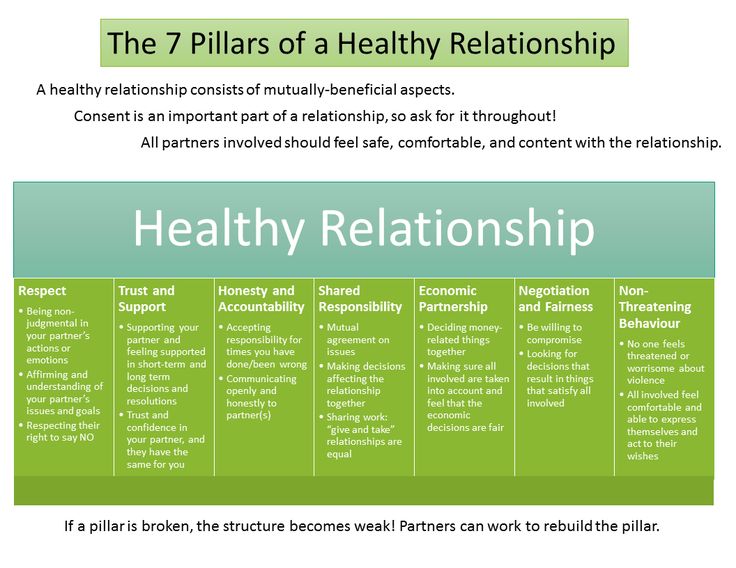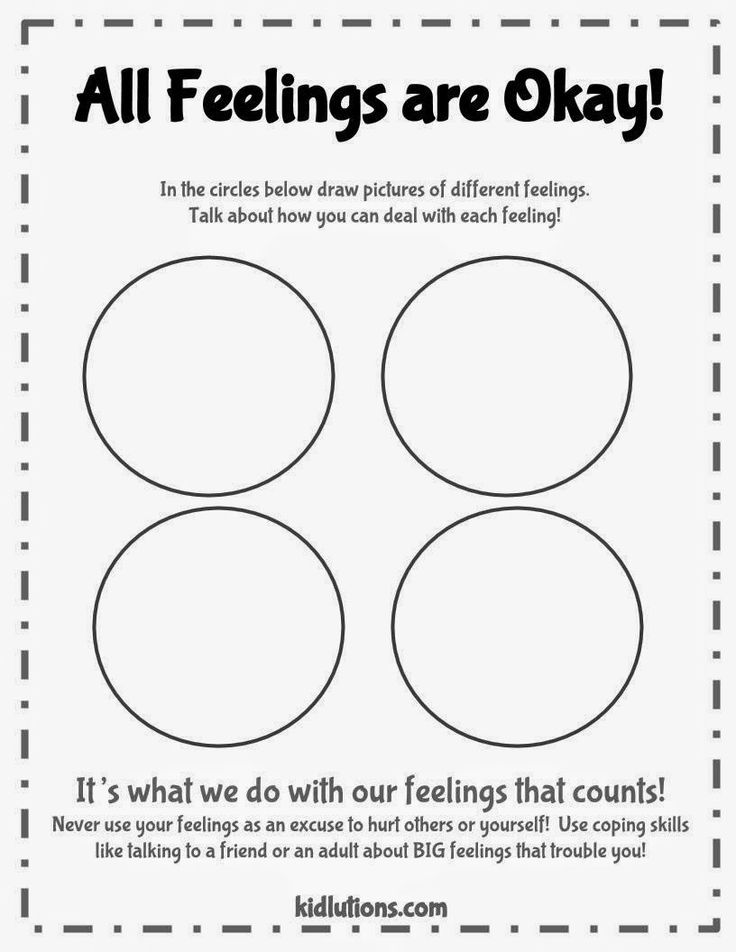How to overcome fear of failing
7 Ways to Overcome Fear of Failure and Move Forward in Life
Jump to section
Coming to terms with your fear of failure
Start by asking yourself these 4 questions
How to get over the fear of failure: 7 tips
Conquering fear of failure at work
Acceptance is key
Failure is scary. When you put effort into a project, tell countless people about it, and spend sleepless nights trying to succeed, defeat can be crushing. But if you’re constantly afraid of a negative outcome, why bother pursuing anything?
Your dream job could be off the table because the effort would feel meaningless if you fail. You might end a promising relationship because you fear pain if it doesn’t work out. In both of these cases, the potential of a bad outcome can keep you from pursuing something beautiful.
Whether it’s at work or in life, it’s normal to be concerned about whether things will work out. In fact, according to this survey of more than 1,000 people, folks are more afraid of failing than they are of spiders, being home alone, and even ghosts.
But the anxiety can become debilitating if you let it. It’s important to be mindful of your fears and reframe them so they don’t negatively impact your life.
Here’s our guide to help you overcome fear of failure.
Coming to terms with your fear of failure
Fear of failing, clinically known as atychiphobia, is difficult to identify. It manifests through subconscious behaviors and thought patterns invisible to you.
And, to complicate things further, this fear is a self-fulfilling prophecy: you're so afraid of failure that it becomes the only possible outcome. It’s often accompanied by a fixed mindset and automatic negative thoughts. That negativity harms your confidence and increases self-doubt.
Then, when you inevitably do fall short, you confirm to yourself that your fear is valid.
Let’s use a job interview as an example. If you don’t bother attending because you’re scared of failing, you simply ensure that you’ll never get the job. You then try to validate your choice by convincing yourself you didn’t deserve to or weren’t able to succeed in the first place.
And so, the cycle continues.
The key to breaking this pattern is recognizing your behaviors. See if any of these resonate with you:
- Reluctance to try new things. Challenging projects or other endeavors aren’t worth it to you if you’re scared to fail.
- Self-sabotage. You procrastinate pursuing your goals or feel paralyzed with anxiety by progress.
- Low self-esteem, self-confidence, and self-doubt. You don’t believe you can achieve your goals, so you don’t even try. Seeing successful people on social media fills you with dread because you’ll never achieve what they have.
- Perfectionism. If you can’t do it perfectly, why bother? You’re only willing to try if you think you can meet your high standards.
- Negative thoughts. When confronted with a challenge, your head is filled with negative self-talk.

If any of these resonate, it’s not too late to make some changes. But that’s easier said than done.
Acknowledging your fear can be scary in itself. The anxiety becomes so familiar that hanging onto it feels safer than dealing with its underlying symptoms. It can often be a sign of shame, depression, anxiety, or low self-esteem — all of which can be hard to confront. It’s worth talking to a mental health professional if you need help navigating these conditions.
In milder cases, though, learning to reframe your thoughts can help. Don’t underestimate the power of positive thinking.
Start by asking yourself these 4 questions
Next time you feel afraid, take a deep breath and write your thoughts in a journal. You can use these questions to prompt a different way of thinking:
- What am I really afraid of? Writing down your fears can make them feel less overwhelming. Problems tend to look a lot smaller on the page.

- Who am I fighting for? Sometimes your fear stops you from helping people you care about. Reminding yourself of this can give you the push you need.
- What’s the worst that could happen? The worst-case scenario may not be as bad as you think. In many cases, failure doesn’t change much about your current situation, so what do you have to lose?
- What if I succeed? Think of how your life would improve if you followed through. Remember why you got into this in the first place.
Reading your answers can help you identify your fears, thought patterns, and limiting beliefs you weren’t aware of before. It can also make you feel less overwhelmed, allowing you to examine your fears objectively and plan a course of action.
Once you’ve written your thoughts, work with BetterUp to unpack them. Our coaches can help you reframe your fears so they no longer hold power over you.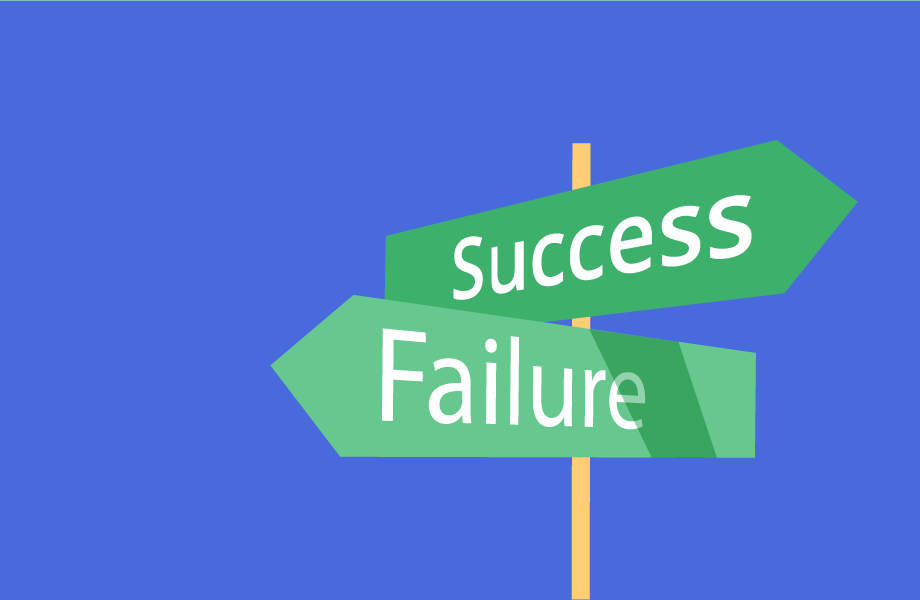
How to get over the fear of failure: 7 tips
It’s one thing to identify your fears; it’s another to overcome them. Here are some tips that can help.
1. Accept that failure is normal — and it can be a good thing
There’s a reason why the expression “fail fast” has gained popularity in recent years. Business leaders know that accepting failure is a part of achieving success. Every mistake is a stepping stone toward a larger goal.
No one starts a business with the intent to fail. But, if things go south, it better happen quickly. The sooner it’s over, the sooner you can learn from your mistakes and move on.
2. Adopt a beginner’s mind
There’s a first time for everything. Adopting a beginner's mind is about approaching new challenges with curiosity and positive thinking rather than fear. Look at every situation as a learning experience and give yourself permission to not be a pro immediately. Even Michael Jordan practiced before he became a success story.
If you’re a perfectionist, you probably want to succeed in your first attempt. But this is an unrealistic expectation. You’ll encounter roadblocks, and that’s okay. Two small steps forward and one step back is still a net positive.
3. Talk to someone you trust
When you're stuck in your own head, overthinking and overwhelm can kick in. Talking to someone you trust can help shed new light on your situation — whether that’s a friend, mentor, family member, or therapist. Tell them about your fears and listen to their feedback. They can change how you see things.
4. Give yourself more options
When you’re worried about a situation, it’s easy to fixate on one possible negative outcome. But until you’ve gone through with it, you don’t know how the story ends. You can’t predict the future. Consider the possibility that things turn out better than you think.
Use your visualization skills to imagine multiple possible endings. This new project might lead to new industry connections, a deeper relationship with your boss and team, or more knowledge about your field. Or (and this is the best option of all), you might knock it out of the park. Until everything is said and done, anything is possible.
Or (and this is the best option of all), you might knock it out of the park. Until everything is said and done, anything is possible.
5. Remember the cost of not trying
In the words of hockey legend Wayne Gretzky, “You miss 100% of the shots you don’t take.”
Living in fear comes at a cost. If you never try anything, you could miss out on some of life’s great opportunities. Remember that trying and failing is often better than not trying at all.
6. Adjust on the fly
Nothing is ever set in stone. If you try something and it's not what you expected, you're allowed to make changes. You can quit a job you don't like anymore, ask for help when you're overwhelmed, or extend your deadline if you need it. As long as you're willing to adapt, you're never truly stuck in a decision.
7. Be afraid, but do it anyway
Your fear may never really go away, and that’s okay. That doesn’t mean you have to let it control you. If bravery means progressing without fear, courage means doing it despite fear. Be courageous, and you’ll be surprised what you can accomplish.
Be courageous, and you’ll be surprised what you can accomplish.
Conquering fear of failure at work
Depending on your career, work can feel particularly high pressure. Here are some tips to help you conquer fear in the workplace.
1. Identify the benefits of past failures
Many negative experiences have hidden benefits, even if you don’t see them instantly. Take a look at previous mistakes and how they influenced you. Perhaps an embarrassing typo made you more detail-oriented, or a missed deadline made you more efficient. These experiences might have hurt, but you persevered. You learned from those failures; you can learn from future ones, too.
2. View it as a challenge
When there’s a higher risk of failure than normal, see it for the challenge it is. This is an opportunity to test your skills in a way you haven’t before.
Stepping out of your comfort zone is hard work and might be stressful at first — but not all stress is bad. Some people fear success because it means change. But if you’re up to the task, you can activate eustress and engage in some of the best work you’ve ever done.
But if you’re up to the task, you can activate eustress and engage in some of the best work you’ve ever done.
3. Be kind to yourself
If things don’t go your way, remember to be kind to yourself. Self-care is vitally important when you don’t meet your own expectations. Go home, take a bath, hit the gym — whatever you need to relieve stress before hopping back on that horse.
Acceptance is key
No one likes to make mistakes. At best, they’re embarrassing. At worst, they affect your team members or loved ones. But they’re unavoidable. You can chase perfection all you want, but to err is to be human. The moment you stop making mistakes is when you stop growing in your life and career.
Of course, not every risk is worth taking — you don't want to enter a situation that causes mental or physical harm. But many of life's opportunities involve a healthy challenge.
Learning how to overcome fear of failure is easier said than done. But we believe you can do it — and we’re excited to see you thrive.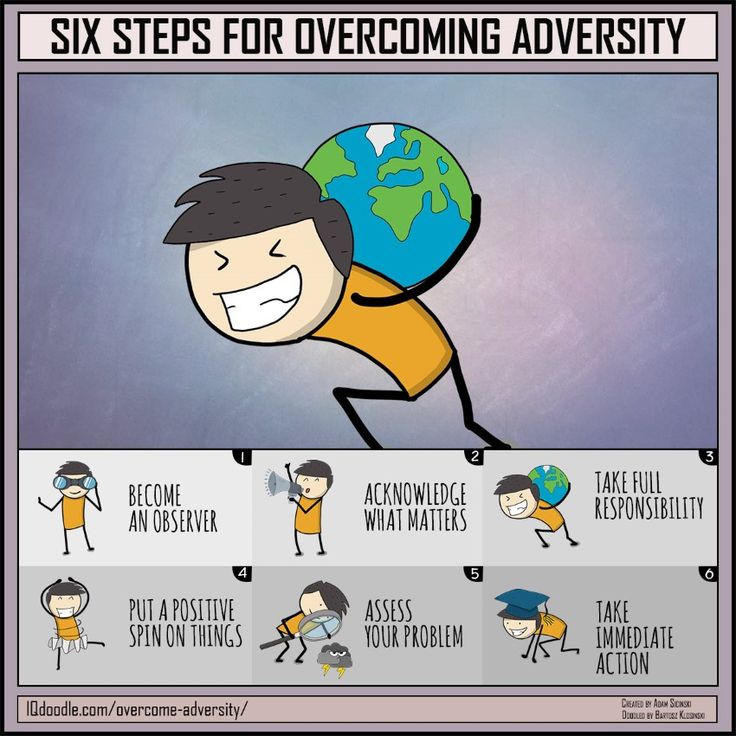
How to Overcome a Fear of Failure
“How to Build a Life” is a weekly column by Arthur Brooks, tackling questions of meaning and happiness.
For years, I was haunted by a fear of failure. I spent my early adulthood as a professional French hornist, playing in chamber-music ensembles and orchestras. Classical music is a perilous business, relying on absolute precision. Playing the French horn, prone as it is to missing notes, is a virtual high-wire act in every concert. I could go from hero to goat within a few mistakes during a solo. I lived in dread, and it made my life and work misery.
Fear of failure is not just a problem for French hornists. Looking bad in front of others is arguably the most common dread people face. This explains why, for example, researchers have found that public speaking is college students’ most common fear; some scholars have famously asserted that people fear it even more than death. And dread about failing doesn’t just afflict the young or inexperienced: According to a 2018 survey conducted by Norwest Venture Partners, 90 percent of CEOs “admit fear of failure keeps them up at night more than any other concern.”
And dread about failing doesn’t just afflict the young or inexperienced: According to a 2018 survey conducted by Norwest Venture Partners, 90 percent of CEOs “admit fear of failure keeps them up at night more than any other concern.”
This particular brand of anxiety appears to be on the rise. According to the World Bank, the percentage of American adults who see good opportunities to start a business but indicate that fear of failure would prevent them from doing so has been increasing for the past two decades. It is approaching the world median, in spite of the fact that the U.S. has long prided itself on being a land of intrepid entrepreneurs.
There are a few possible explanations for this increase. Social media threatens to make every slip-up an extinction-level event, socially and professionally. Meanwhile, a generation of overprotective Baby Boomer parents have shielded their Millennial and Gen Z kids from the small risks and failures that build the emotional fortitude required to withstand the inevitable, larger failures of adulthood.
To the extent that this trend extinguishes entrepreneurial behavior, it’s bad enough for our future. But I am less worried about the effect on start-up enterprises than on the enterprise of building happy lives. Fear of failure can have surprisingly harsh consequences for our well-being. For some, it can lead to debilitating anxiety and depression, a diagnosable malady called atychiphobia. But even before it reaches that point, it can steer us away from life’s joyful, fulfilling adventures, by discouraging us from taking risks and trying new things.
Want to stay current with Arthur's writing? Sign up to get an email every time a new column comes out.
The fear of failure has a number of sources, not all of which are obvious. At first thought, it might seem like it is the dread of some known, bad outcome. For example, I might be afraid to give a presentation for my boss because if I fail, I won’t get a promotion, with clear implications for my career.
But the fear of failure seems to actually be about unknown outcomes, at least for those who are most anxious. In one recent study conducted at University College London, psychologists devised an experiment in which participants had to decide between a series of gambles with guaranteed rewards and a set of bets with potentially higher wins and losses. Based on this, they found that people who suffered from anxiety were the most unable to estimate the best probable reward, which is consistent with earlier research. The implication of this risk aversion is that if you are particularly anxious about failing, it’s the uncertainty about whether you will do so that bothers you more than the actual consequences.
Researchers have also found that people who strongly fear failure have a composite of two personality characteristics: low achievement orientation (that is, they don’t take much pleasure from accomplishments and meeting goals) and high test anxiety (a fear of not performing well at a crucial moment). In other words, they’re motivated less by the possibility of winning and gaining something of value, and more by their anxiety about the possibility of messing up. Those are some of the same personality traits that drive perfectionism, and can show up in low achievers and high achievers alike.
In other words, they’re motivated less by the possibility of winning and gaining something of value, and more by their anxiety about the possibility of messing up. Those are some of the same personality traits that drive perfectionism, and can show up in low achievers and high achievers alike.
In fact, perfectionism and the fear of failure go hand in hand: They lead you to believe that success isn’t about doing something good, but about not doing something bad. If you suffer from a fear of failure, you’ll know exactly what I mean. Where striving for success should be an exciting journey toward an amazing destination—as the climber George Mallory said, to ascend the mountain “because it’s there”—it feels instead like an exhausting slog, with all your energy focused on not tumbling over a cliff.
Surprisingly, people who fear failure do not need to extinguish the fear itself—to become more fearless—in order to make themselves happier. Instead, the best way to tame a fear of failure is to hone courage. Stanley Rachman, a psychologist, showed this in his research in the 1980s and then in the following decades on people in dangerous professions, such as paratroopers and bomb defusers. They too tended to fear failure—and messing up in such cases might be dire indeed. But they were able to tap into reserves of courage to act anyway. As Rachman argues, fearlessness is abnormal, and even dangerous, because it leads to foolish risk taking and bad leadership. Courage, on the other hand, helps you to balance prudence and resolve, even if the only thing you’re defusing is an office conflict.
Stanley Rachman, a psychologist, showed this in his research in the 1980s and then in the following decades on people in dangerous professions, such as paratroopers and bomb defusers. They too tended to fear failure—and messing up in such cases might be dire indeed. But they were able to tap into reserves of courage to act anyway. As Rachman argues, fearlessness is abnormal, and even dangerous, because it leads to foolish risk taking and bad leadership. Courage, on the other hand, helps you to balance prudence and resolve, even if the only thing you’re defusing is an office conflict.
The good news is that all three of these drivers—an aversion to uncertainty, an attachment to the appearance of perfection, and a lack of courage—are qualities most of us would rather rid ourselves of. Facing the fear of failure is more than just dealing with a problem; it is an opportunity to grow in virtue. You can start this growth with three practices.
1. Focus on the present.
I once had a conversation with an oncologist about what it’s like to give people a dire, late-stage-cancer diagnosis. He said that some of his patients—people with a particular need to control tightly all parts of their lives—would immediately go home and start researching their prognosis on the internet. He would counsel them not to do this, because it would only make them sick with worry.
He said that some of his patients—people with a particular need to control tightly all parts of their lives—would immediately go home and start researching their prognosis on the internet. He would counsel them not to do this, because it would only make them sick with worry.
Instead, he told them, start each day with this mantra: “I do not know what will happen next week or next year. But I know I have the gift of this day, and I will not waste it.” He said it helped not just their outlook about the disease but also their overall approach to life. I recommend this same refrain to anyone suffering from a fear of failure. Own the unknown future through gratitude for the known present, and watch your happiness rise, as you enjoy what you have in front of you.
2. Visualize courage.
Remember that one of the most common fears of failure involves public speaking. Even the thought of giving a speech in front of a group makes some people panic. The solution to this problem is simple: exposure.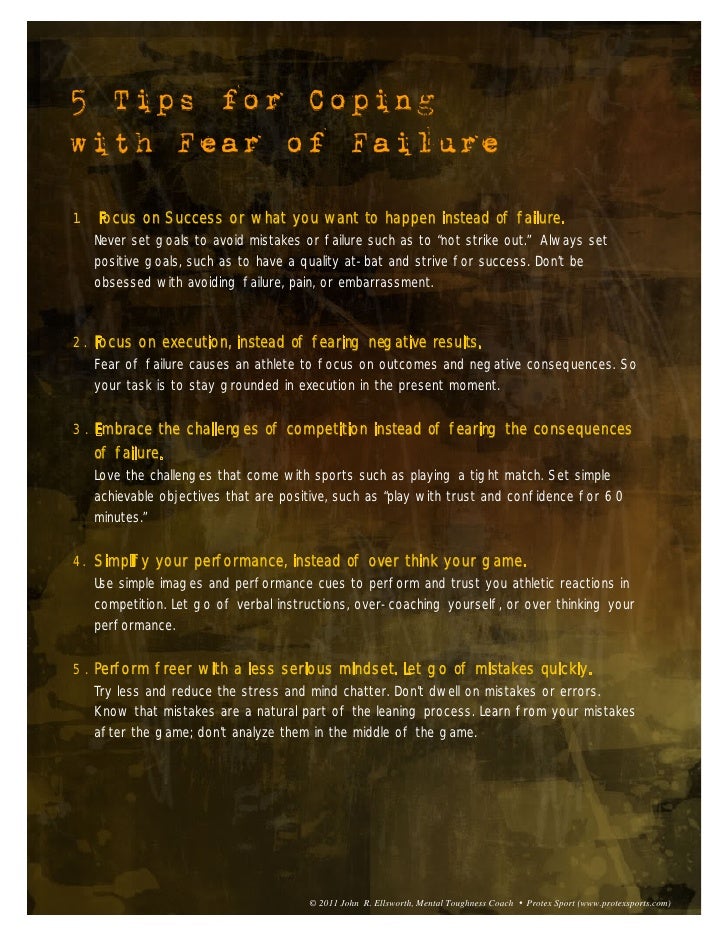 That doesn’t mean you need to haul a soapbox to your town square every day; just simulating a speech environment using virtual reality has been shown to lower people’s fear significantly.
That doesn’t mean you need to haul a soapbox to your town square every day; just simulating a speech environment using virtual reality has been shown to lower people’s fear significantly.
Anyone can use this idea, even without strapping on a VR simulator, through simple concentrated imagination. Instead of avoiding the source of your fear even in your own mind, spend time each day visualizing scary scenarios, including possible failures. Picture yourself acting with courage, despite the fear. I did this extensively early in my teaching career, imagining everything from the prosaic (forgetting my notes) to the absurd (realizing after an hour-long lecture that my fly was unzipped the whole time—something that subsequently happened in real life). I soon found that I was, in fact, more courageous in front of the class as a result.
3. Litanize humility.
In Dante’s Divine Comedy, Satan is depicted as a victim of his terrible pride by being frozen from the waist down—fixed and in agony—in ice of his own making.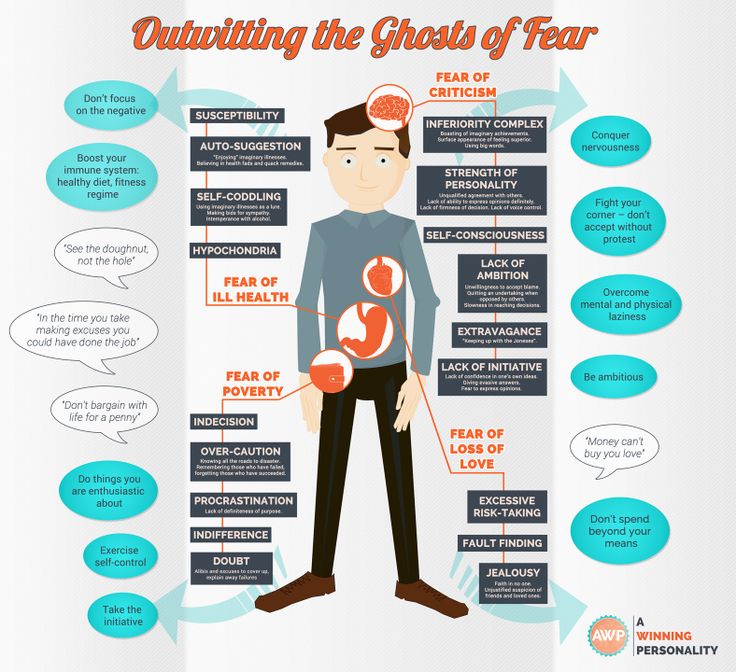 Fear of failure and perfectionism are like that prideful sea of ice, freezing you in place with thoughts of what others will think of you—or, worse, what you will think of yourself—if you do not succeed at something.
Fear of failure and perfectionism are like that prideful sea of ice, freezing you in place with thoughts of what others will think of you—or, worse, what you will think of yourself—if you do not succeed at something.
There is a solution that follows Dante’s Catholic sensibility, but that in reality need not be religious at all. An early-20th-century Spanish cardinal, Rafael Merry del Val y Zulueta, composed a beautiful prayer called the “Litany of Humility.” The prayer does not ask that we be spared humiliation, but that we be given the grace to deal with the fear: “From the fear of being humiliated, / Deliver me, O Jesus.” It continues: Deliver me from the fear of being despised. From the fear of suffering rebukes. From the fear of being calumniated. From the fear of being forgotten. And from the fear of being ridiculed.
Make your own version of the litany of humility, religious or not, and recite it each night. Even if the items seem ridiculous to you (“From the fear of messing up my PowerPoint presentation, deliver me”), if you want relief, you have to state your desire.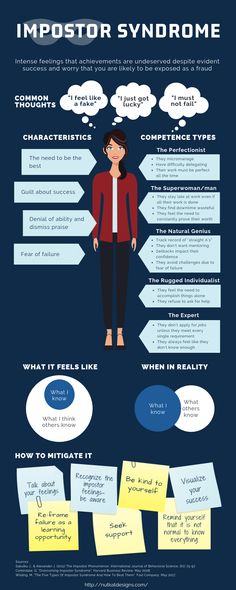 Only then will your fear cease to be a phantom menace and instead become concrete—and thus conquerable.
Only then will your fear cease to be a phantom menace and instead become concrete—and thus conquerable.
If all of the above strategies seem too time consuming, there is one last, tried-and-true method to develop courage in the face of failure: fail. And then, survive what the dark unknown truly holds. That is what eventually cured me.
As I started by telling you, my music career was made miserable by my terror of mistakes. But at least my mouth was occupied with the instrument, so I didn’t have to speak publicly—that really freaked me out. Both those fears came together one fateful day at a chamber-music concert at Carnegie Hall in New York. I was slotted to give a short speech—maybe two minutes—about a piece my ensemble was to play. I stepped out of my chair and walked to the front of the stage, shaking in fear. Then I lost my footing, and literally fell into the audience. Decades later, I can still see it happening, in slow motion. As the audience gasped, I jumped up, my horn badly damaged and my arm injured, and shouted, ridiculously and implausibly, “I’m okay, folks!”
Years later, I look back on that experience and laugh. But it wasn’t just funny—it was an incredible gift. Since scoring a perfect 10 in humiliation that day, I care very little about looking ridiculous. I take more risks and show my personality in ways I don’t think I would otherwise. Failure set me free.
But it wasn’t just funny—it was an incredible gift. Since scoring a perfect 10 in humiliation that day, I care very little about looking ridiculous. I take more risks and show my personality in ways I don’t think I would otherwise. Failure set me free.
How to overcome fear of failure and develop a growth mentality
Millions of people suffer from this condition. Emotional symptoms include feelings of powerlessness, anxiety, panic, and fear. It's atychiphobia, but most people call it the fear of failure, and it's largely instinctive. We are inherently risk-averse, what scientists call the desire for safety.
In today's world, we rarely face physical risks, and as a result, our brain tries to protect us from things like embarrassment and failure. Our ability to tolerate discomfort, even emotional discomfort, is so low that most of us prefer to eliminate all risks rather than take an alternative path that could bring more benefits. But choosing the safest options is more dangerous than you might think. To succeed, we must change the way we deal with failure. nine0003
To succeed, we must change the way we deal with failure. nine0003
The need for failure
Google, one of the most innovative companies in history, has attempted to identify the most important characteristics of successful teams. Their study, dubbed "The Aristotle Project," reached out to many people. What did you manage to find out? Psychological safety turned out to be the most important feature of the most productive teams:
“In a team with a high level of psychological safety, participants feel confident when they have to take risks in the presence of each other. They know that none of their colleagues will judge or punish them for making a mistake, asking a question, or suggesting an idea.” nine0003
So there is an obvious connection between innovation and willingness to fail. In this era of change, companies that refuse to take risks end up falling behind competitors or going bankrupt. It is very important for survival that the willingness to take risks is an integral part of the culture of the organization. There are many examples in modern history when giant corporations died out like dinosaurs due to lack of innovation.
There are many examples in modern history when giant corporations died out like dinosaurs due to lack of innovation.
Some of the most brilliant minds were not only prepared for failure, but also welcomed it. nine0003
- “In my company, failure is an option. If you don't fail, then you're not innovative enough." Elon Musk
- "Celebrating success is great, but it's more important to learn from failure." Bill Gates
- “You must be ready to act. You have to be prepared for failure and failure, otherwise you won't achieve much." Steve Jobs
The Importance of Mentality
Babe Ruth is one of the greatest baseball players of all time. He was admired by millions of fans from around the world. Even people who don't care about baseball might know that he set the record for most home runs. But did you know that he also set the record for most strikeouts? nine0003
"The batter had to defend the house, hit the ball like in the sister game of cricket," writes biographer Robert Creamer in his book Babe: The Legend Comes to Life.
“But for Root, the strike-out was a fleeting, albeit disappointing, setback. Protecting the house didn't mean much to him." His style of play completely overturned established ideas about baseball. In an instant, he changed the game, making it the way we know it now.
"Every strike gets me closer to the next home run," Babe Ruth once admitted. For Babe, failure was the tool he used to achieve success. nine0003
“Unless you start seeing failure in a positive light, your people won't want to make a big difference,” says Charlene Lee, lead analyst at Prophet's Altimeter. But in order to accept failure and accept it as an integral part of the team’s work, you need to change your mindset. Failure should not be viewed as a series of failures, but as a competitive advantage. In his book The New Psychology of Success. Think and Win,” Carol Dweck identified two mindsets: a fixed mindset and a growth mentality:
| Fixed mindset | Growth mentality | |
| Core belief | Intelligence is constant | Intelligence can be developed |
| Problems | Desire to avoid problems | Desire to solve problems |
| Obstacles | nine0041 Give up easilyPersevere in the face of failure | |
| Labor | Consider the efforts made useless | Seeing effort as a path to excellence |
| Attitude towards criticism | Ignore helpful feedback | Learn from criticism |
| Success of others | See others' success as a threat | Learn from and be inspired by the success of others |
(Chart based on Nigel Holmes chart)
A fixed mindset hinders growth and learning, while a growth mentality helps to perceive failure in a positive way and use it to move forward.
How to Overcome Fear of Failure and Develop a Growth Mindset in Your Organization
1. Take Every Opportunity to Learn
Rejoice in failure, because it gives you the opportunity to learn a useful lesson. After each project, get together with the team and discuss what experience can be used in the future. Invite participants to share which factors worked and which did not. If people are hesitant to share their opinion, start by discussing what you would like to improve on the next project.
As a manager or supervisor, you have an obligation to minimize risks. Help the team understand that you can't insure everything. A series of small failures will help you avoid a major failure in the future. This does not mean that we should strive for them. But it is important to remember that you learn from your mistakes. nine0003
2. Share feedback
Feedback is very important to correct your actions. The more often you get them, the better for everyone. Seek feedback from team members on a regular basis and provide feedback yourself whenever possible. By demonstrating your willingness to receive feedback, you set the tone for the entire team so that no one is embarrassed to speak their mind. When everyone learns to give honest feedback, it will become easier for them to receive it.
Seek feedback from team members on a regular basis and provide feedback yourself whenever possible. By demonstrating your willingness to receive feedback, you set the tone for the entire team so that no one is embarrassed to speak their mind. When everyone learns to give honest feedback, it will become easier for them to receive it.
If you receive constructive feedback, take note of it and let the reviewer know you took advantage of their suggestions. People will be more willing to share honest feedback if it works. Keep in mind that feedback should not be limited to criticism. nine0003
3. Praise the process
When things are going well, the performers are usually praised for it. But it is much more important to praise the process that led you to success. In the words of Carol Dweck, “If you believe that intelligence can be developed with some effort, then most likely you will have a positive attitude towards such efforts.”
Even if the project did not end the way you would like, you still look for factors that you can comment on. Emphasize the level of motivation of the team members, praise the teamwork and drive to get things done, or say a few words about the team members' perseverance. This will help your employees not give up and tune in to the best. nine0003
Emphasize the level of motivation of the team members, praise the teamwork and drive to get things done, or say a few words about the team members' perseverance. This will help your employees not give up and tune in to the best. nine0003
4. Fight groupthink
When the fear of failure increases, people begin to hide their thoughts and opinions. They will seek not to change the situation for the better, but to avoid mistakes. The best ideas do not come from nothing, but are chosen from many others, both successful and unsuccessful. For brainstorming to be productive, give your employees time to generate new ideas. The idea is for each participant to come up with a dozen or so ideas from which you can choose. nine0003
Encourage divergent thinking and try to take your time when solving problems. And if the decision is made too quickly, encourage team members to think as big as possible. Designate someone as the devil's advocate.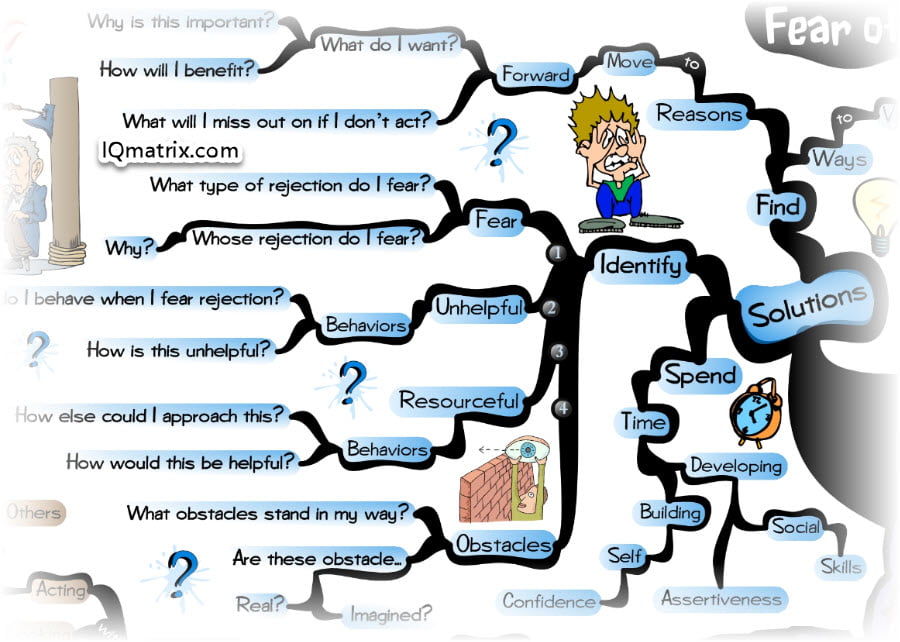 His task will be to challenge the most popular ideas and the flawlessness of the plan. And remember, diversity of opinion can be your greatest strength, so aim for it. Be sure to give each participant a chance to speak. nine0003
His task will be to challenge the most popular ideas and the flawlessness of the plan. And remember, diversity of opinion can be your greatest strength, so aim for it. Be sure to give each participant a chance to speak. nine0003
5. Encourage employee development
As a manager, you have a responsibility to provide opportunities for learning and development for your subordinates. Emphasize the skills of each team member and treat them as resources that others can use. This will not only have a positive effect on team cohesion, but will also make people want to live up to high expectations and help others.
Mentoring is something every team member should do. Have them regularly share their knowledge, especially experience gained from mistakes. By doing so, you can capitalize on failure and help your employees grow and develop. nine0003
We fail together, we win together
We have three core values at Wrike: development, action and collaboration. Living by these values has helped us develop a culture of growth and overcome the fear of failure.
Living by these values has helped us develop a culture of growth and overcome the fear of failure.
- Growth
Growth mentality helps us overcome challenges and innovate. We set ourselves ambitious goals that help us move forward with each new quarter. We strive for the best all the time. nine0020 - Action
We, unlike many teams, do not spend time thinking about how things could have turned out. And small failures do not stop us. We put all our strength into work and in achieving goals. - Collaboration
Each of us has something to share and teach, and we believe that collaboration is the key to our success. We use the strengths of each other, and this helps us on the way to the goal. We fail together and we win together. nine0020
It may seem like a paradox, but the most important thing a team can do to keep themselves safe is to take risks. Working together, supporting the drive to grow, and helping each other recover from our mistakes has been key to our growth and can transform your team in the same way. By freeing yourself from the fear of failure and developing a growth mentality, you are on the path to success.
By freeing yourself from the fear of failure and developing a growth mentality, you are on the path to success.
Three ways to overcome the fear of failure
Few people know, but I tried to enter graduate school 5 times. I received rejection letters and was very worried. Years passed, I defended my dissertation. Each of the failures became for me an experience, a lesson, another step on the way forward. It is necessary to take risks. Success is not guaranteed, each of us can fail. But if everything works out, the reward will be huge. By taking risks, we open the way to success. nine0003
Everything is fine in theory, but how do you use failure to your advantage? To be wrong is painful and unpleasant. When we experience failure, we fear punishment and burn with shame. Therefore, we try to avoid risk at all costs. But fear can be overcome. The following steps will help.
1. Find positive aspects in failures
The main thing is to learn to notice them. This will make it easier to see the good the next time you fail. Pick an embarrassing situation from the past and write down three lessons you learned. For example, you did not have time to complete important work on time. Perhaps because of this, you realized that you need to prioritize better, refuse additional projects, or moderate your perfectionism. Think about what you can do to avoid a recurrence in the future. nine0003
This will make it easier to see the good the next time you fail. Pick an embarrassing situation from the past and write down three lessons you learned. For example, you did not have time to complete important work on time. Perhaps because of this, you realized that you need to prioritize better, refuse additional projects, or moderate your perfectionism. Think about what you can do to avoid a recurrence in the future. nine0003
Watch how others overcome their fears. Ask your friends to share what failures have given them. For example, my manager once published a scientific article with an error and now checks all the data several times. A colleague somehow hesitated during an important presentation and is now less afraid of such situations: he already knows how to get out of them.
2. Treat potential failure as a challenge
Completing a difficult task is always stressful, but it's up to you to decide how you feel about it. If you view stress as a threat, your body begins to prepare for a fight, and you end up feeling like you're in a fight.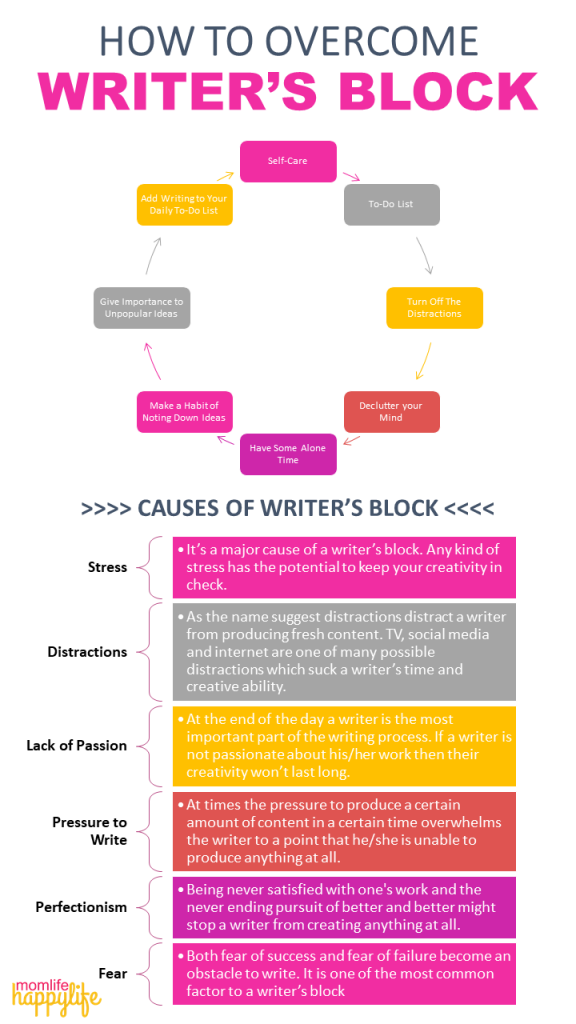 But if you perceive stress as a challenge, you are more likely to relax, believe in yourself and cope with difficulties. nine0003
But if you perceive stress as a challenge, you are more likely to relax, believe in yourself and cope with difficulties. nine0003
Thinking you're doing a great job gives you a positive feeling.
Think of the hard problems you've been able to solve. Let's say you're nervous about an upcoming conversation with your boss. Think back to past meetings. How did everything go? What helped you cope? When you remind yourself of past successes, the task no longer seems impossible.
Visualize success. Imagining that you are doing great at everything, you experience positive feelings. If you get stuck thinking about what could go wrong, the feeling of fear intensifies and the failure you fear becomes more likely. nine0003
3. Don't beat yourself up when you fail
There will never be enough hours in the day to perfect every project. Often there is not enough time, you make mistakes and disappoint yourself. Failure happens to everyone.






